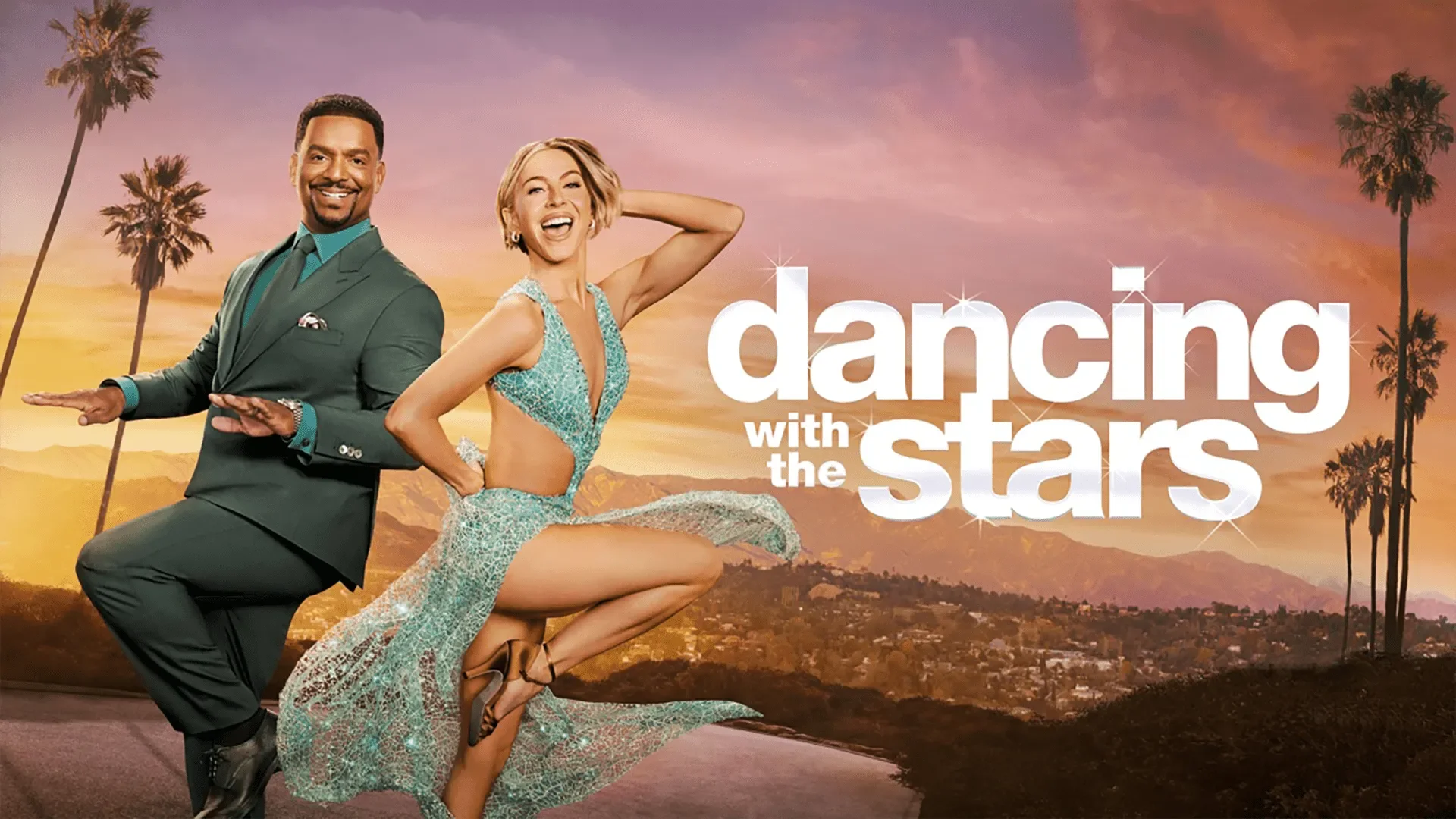Cha-Cha-Charm: How Personality Beats Perfection on DWTS
By Mari Regalado
Let’s be honest with ourselves: Not many people tune into competition shows just to admire talent anymore. In the age of social media and the oversaturation of content, skill alone doesn’t always cut it. We watch for the drama, the personalities, and the contestants who somehow make us care about their journey, even if we’ve never danced or sung a day in our lives.
Over the years, we’ve watched people chase their fifteen minutes of fame, performing through some of the most nerve-racking moments of their lives. We’d sit on our couches, phone in hand, voting for our favorite performances and deciding who got to stay. But now, winning over the crowd takes more than just a good performance, it’s about creating a connection.
People love to root for someone who feels real; the kind of person who replies to comments, keeps up with trends, and doesn’t take themselves too seriously. That mix of talent, personality, and authenticity has completely reshaped what it means to win over an audience, and nowhere is that clearer than in Dancing With the Stars 2025 (DWTS).
As a dancer myself, I can recognize how important technique really is, but having started dancing only three years ago when I entered college, I also know how hard it is to step in and learn from scratch, especially with traditional ballroom or Latin dances. I can appreciate how much courage it takes for these celebrities to put themselves out there and try to keep up with professionals who have been dancing for years.
Watching DWTS now, I’ll admit there are moments when I wish the audience valued technical improvement a bit more, but I also understand that isn’t really the point of the show. The more I’ve watched and researched this season, the more I’ve realized that DWTS, despite having “dancing” in its title, is about more than good routines; it’s about building a story and a connection. As a dancer, I find that dynamic fascinating, even if it sometimes clashes with my instinct to focus on my form and precision.
It reminds me of when I was first starting out, awkward and unsure yet excited to learn, and I’ve come to realize that maybe that’s exactly why people keep coming back to watch more. There’s something genuinely fun about watching people who’ve never set foot on a dance floor grow week after week as they slowly find their rhythm and confidence. That underdog story keeps viewers rooting for them.
What makes it even more interesting is that not everyone starts from the same place. Some contestants are athletes, some are actors, and others are complete beginners just trying to keep up with the beat. If eliminations were based purely on technique and judges’ scores, the show would lose its emotional pull and, honestly, much of the audience that keeps coming back to watch every week. The voting system reflects that balance perfectly, with judges’ scores counting for half and public votes making up the rest.
That much audience influence gives the show its own kind of unpredictability. It lets contestants with big personalities and loyal fan bases stick around, even if their technique isn’t the best, while stronger dancers who don’t get as much attention or screen time end up going home earlier than expected. This season, no one represents that dynamic better than actor and comedian Andy Richter.
Andy isn’t the strongest dancer in the competition, and he knows it. You can see it in his face every week when he looks genuinely surprised that he’s still there. What has kept him around through week six, and might carry him even further, is his attitude and the way he approaches the show. As a comedian, he throws in a few jokes here and there, but when it comes to his performances, he takes them seriously.
What people especially love about Andy is how unafraid he is to look a little awkward while genuinely trying to improve, often adding a few self-deprecating comments along the way. His “just here for the vibes” energy feels refreshing this season and has become a large reason that viewers keep voting for him. He doesn’t treat the competition like a bit or a joke; he treats it like a real chance to learn something new. He’s getting votes because he’s fun to watch, easy to root for, and continues to improve each week.
Fans have even started to see him as a kind of father figure with a wholesome and supportive presence who’s just out there doing his best every week, improving little by little, and having a good time. One Reddit user summed it up perfectly: “He’s not the greatest dancer, but he’s the heart of the show.”
While Andy is the standout example of that this season, he definitely isn’t the first contestant to fill that role. Every DWTS season seems to have someone like him: the lovable underdog whose charm and personality outshine their technical skill. Some fans have even compared him to actor and comedian Bill Engvall from Season 17, another contestant who made it surprisingly far after audiences couldn’t help but root for him.
Another part of what makes Andy’s journey stand out is his partnership with Emma Slater. In my opinion, she’s also a big part of why the pair has made it this far. She recently replied to an Instagram comment that said Andy “takes a total of five steps on the dance floor and is still somehow in the show” by responding, “If you saw my last season, you’ll see what five steps is. This dance had at least six.” Her response showed her sense of humor while still standing up for her partner, perfectly capturing the chemistry that fans have grown to love. Emma has also defended Andy publicly in interviews and media appearances, showing how much faith she has in his growth and how strong their partnership has become both on and off the dance floor.
Beyond the show, their TikToks have helped them build a huge fanbase, featuring everything from self-deprecating jokes about still being in rehearsals for the Halloween episode to funny clips of their practice sessions. Those behind-the-scenes moments make them feel down-to-earth and relatable, helping audiences connect with them and root for them week after week.
Of course, with a show this popular, favoritism and likability overshadowing actual dance technique has become a pretty heated topic this season. Some fans argue it’s unfair that contestants with stronger skills, like Pentatonix singer and musician Scott Hoying and his professional partner Rylee Arnold, were sent home during Wicked Night, while others with weaker technique, like Andy, are still in the running. Others point out that the show’s title says it all. It’s Dancing With the Stars, not Dancing With the Pros. Perfection wasn’t meant to be the standard, but rather, it’s about watching celebrities improve, push themselves, and surprise everyone along the way. For a lot of people, that’s what makes the show fun to watch, and while it’s easy to roll your eyes at a little “underdog favoritism,” that’s also what keeps the episodes interesting. If it were only about dance ability, it wouldn’t have the same heart, emotion, or chaotic fun that DWTS brings to reality TV every week.
Still, the tension between skill and sincerity says a lot about how we consume entertainment today. More than anything, we crave authenticity. People connect with imperfection because it feels more real, and it reminds us that not everything needs to be perfect to be worth watching. There’s something refreshing about seeing someone step outside their comfort zone and give it their all, even when it doesn’t go perfectly. Andy Richter has tapped into that in the best way. He knows he’s not the strongest dancer, but he continues to show up with heart, humor, and humility. That kind of honesty feels rare in reality TV, and it’s exactly what keeps people tuning in and rooting for him.
At the end of the day, Andy probably won’t win the Mirrorball Trophy, and he knows that. But that’s not really the point. His presence is a reminder of why Dancing With the Stars still works after nearly twenty years and thirty-four seasons. The show has always been about more than just clean choreography; it’s about growth, connection, and the personalities that make audiences stick around. In 2025, that connection lives just as much online as it does on the dance floor.
Through his relatable posts, self-aware humor, and willingness to just be himself, Andy has built a social media image that feels real in a space where so much of what we see is filtered or forced. That image has not only shaped how audiences see him, but also how far he’s made it in the competition. It proves that in the DWTS era of likes, shares, and fan votes, heart and authenticity can carry just as much weight as perfect footwork.



